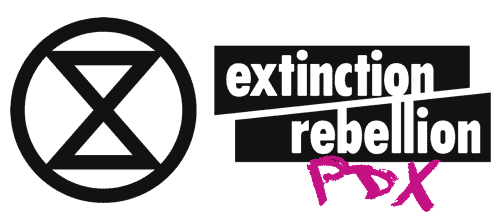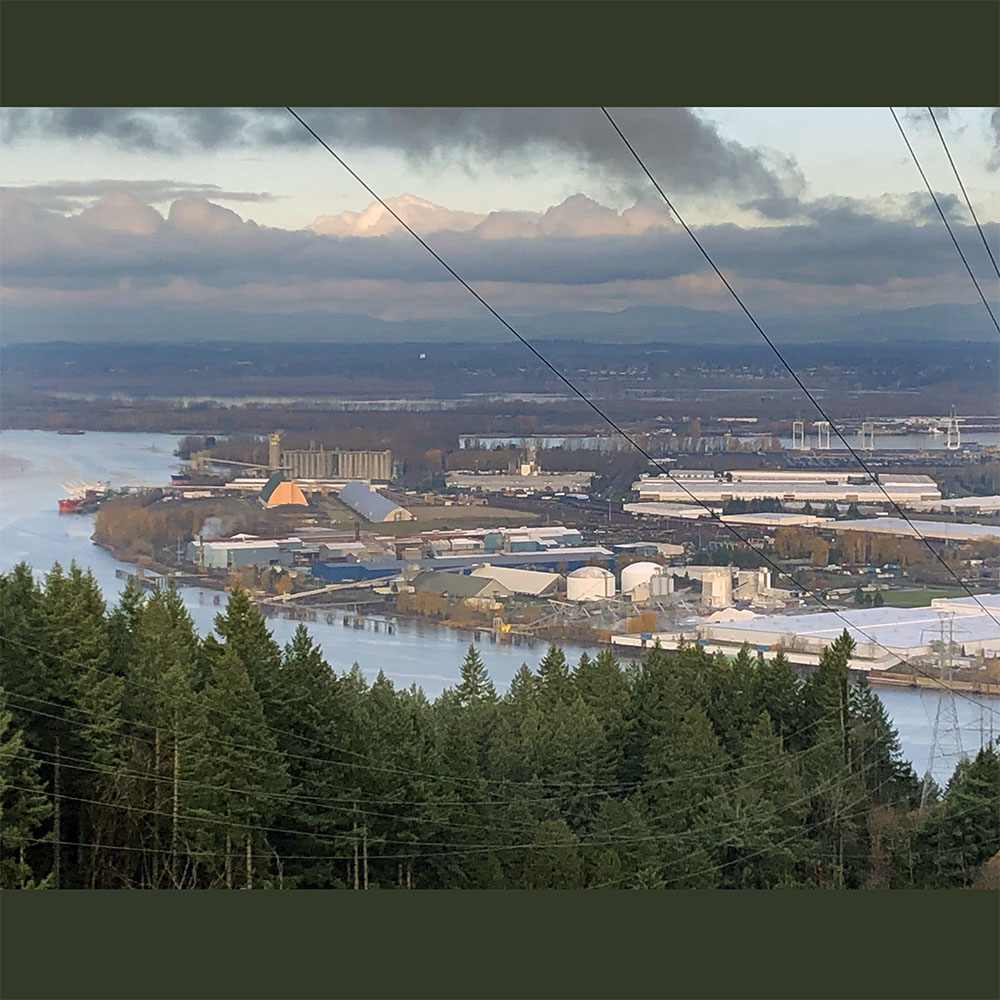What follows are notes taken by Sarah Taylor, from the Economic Opportunities Analysis (EOA) meeting on December 1, 2023. The purpose of the EOA is to analyze and forecast growth in Portland’s industrial and other business districts, then designate an adequate 20-year supply of developable land for business and job growth. The EOA update will align 2040 growth expectations with current market trends and community choices. Sarah is a member of the EOA Community Advisory Group.
************************************************
We sit in a room in the Vanport Building, surrounded by large maps of the industrial lands along the North Reach of the Willamette River. In bright colors, they illustrate flood plains and set backs and the inner workings of the harbor.
The community members, Bob Sallinger of Willamette Riverkeeper, me, Sarah Taylor, Portland Harbor Citizens Advisory Group and Braided River Campaign, and Heather King of the Columbia Slough Watershed Council, are far outnumbered by industry lobbyists and city planners. At this particular meeting, The Working Waterfront Coalition had five people who identified as representing them. There is the Portland Business Alliance and the Columbia Corridor. The pack. I should not be but I am nonetheless shocked by their basic knowledge of the situation, laws and documents. At one point a WW rep says, “Do we have a climate crisis plan?” As if this is one more obstacle to cross.
Slowly the planning bureau lays out the future of the riverbank. The flooding in 1996 was 12-18 inches higher than the 100 year flood plain. Industry tries to agree their way out of this data and says they use the 500 year flood plain, which it is explained they can’t do. If it was 12-18” higher in 1996, we can expect with climate change more severe floods in the future. The city is looking for places for the flood waters to go. NIMBA says the industry reps. “Not in our back yard.”
At this point river dependent industry is exempt from most regulations- planing, flood plains and set backs. Their philosophy being it would seem, not one inch riverbank for wildlife or flooding, Greenways Laws, Mitigation banking spill into the room. Industry is alarmingly, in my opinion, uniformed and argue the same points over and over. Aren’t we being too hasty in protecting the environment?
Tribes are brought up but not as a core value. More a recognition that they are part of any mitigation effort. The OMSI mitigation floodplain far more inclusive than the ones in the North Reach. The Koch brothers and PGE will make millions more dollars because their mitigation sites, will also be flood plain sites.
When I bring up health and safety, I am politely told that we are talking about acres of industrial land and economics. I say that economic well being of an individual or a community is tied to their health and safety. The WW reps showed no interest in the health and safety of anyone impacted by their point of view.
Here’s the way it plays out. We will lose industrial acres due to the flood plains. It will be in small increments but they will try to make that up by claiming a larger piece of shovel ready land. Although much of the riverfront land is unused or used for storing various forms of scrap metal or fossil fuels, they will ask for more.
If you drive down Front Avenue from the Broadway Bridge to the end of Linnton you will see a picture of our industrial riverfront in its uses and misuses.
The Economic Opportunities Analysis (EOA) committee lacks anyone from labor and though they hired a BIPOC representative, she is not part of these discussions. In general, the playbook is that heavy industrial jobs are the best thing going for Portland’s BIPOC community, though they have been told this is not their’s to say what jobs any group should have.
It is a tough, long hard struggle and we are outnumbered, but not out educated and I trust that when the votes are needed by city hall, we will have a different city council.
I suggest that each of the community reps have a substitute ( like Working Waterfront has) and that we find someone from labor to attend. The assumption that the WW represents labor is disturbing. Anyone interested? I think we also need someone to represent small business in the area. METRO is also missing.
The industry reps argue over every foot of land they fear will be given to habitat. We have not gotten to the CEI Hub and superfund yet. The number of acres for industrial use has to be determined before we can move on to possible zoning changes and regulations.
The industries on the far reaches of the North Reach as we get to the confluences, live in a state of violations, that is part of their daily life.
The bottom line is that the baby salmon have to be able to get to the estuary by the coast – that is the standard. Unless something changes, human health and safety are not a standard. Given the way industry has resisted paying for the superfund clean-up and that they never cleaned up the beaches,I doubt they plan to clean up an oil spill of the expected magnitude.
The EOA has to hold the line on heavy industrial land. Sitting elbow to elbow with the waterfront industrial lobby is difficult. I wonder if they care what we decide as they can alway sue. But on a hopeful note, the city said somethings are a regulation that can’t be negotiated. I watch the lobby try to find a way out.
The mediator says to me, but where should the jobs go and I sigh. The tank farms don’t employ many people. Its mostly tank farms and parking lots and empty buildings. Rotting docks.
It is the disregard for the safety and health of the community that wakes me up and brings tears of frustration to my heart. The BRC was started to address the EOA and North Reach Plan( in addition to the story telling and tours) and it has been far harder than I could have ever imagined.
The industrial lobby is not just about backroom deals, they are a club that sees each other all the time. It is a way of life and being and relationship and we the community were never intended to ba a part of that club. This committee is meant to bridge that gap but it is not an easy culture to enter.
Sarah Taylor
EOA Community Advisory Group with the City of Portland

